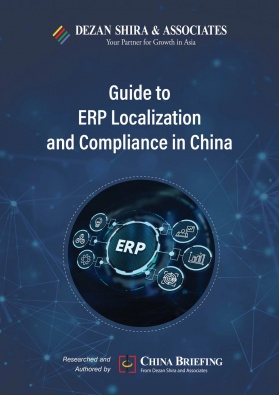China Passes Its First Value-Added Tax Law
On December 25, 2024, the Standing Committee of the 14th National People’s Congress (NPC) approved the Value-Added Tax (VAT) Law, which will come into effect on January 1, 2026.
Financial Analysis and Cost Audits: Identifying Cost Inefficiencies
Identifying cost inefficiencies is crucial for cost reduction, with financial analysis and cost audits serving as key tools. Cost audits also play a vital role in ensuring the sustainability of these optimization measures.
China Monthly Tax Brief: November 2024
In this monthly China tax brief for November 2024, we spotlight policies and measures just announced or scheduled for implementation.
Navigating China’s Latest Export Tax Rebate Adjustments: What Are the Implications?
Starting December 1, 2024, China lowers the export tax rebate rate from 13 percent to 9 percent for 209 products such as refined oil, photovoltaic products, and batteries while eliminates the rebate policy for other 59 products.
Annual Confirmation for China IIT Special Additional Deductions 2025 Ending Soon
The annual confirmation for Individual Income Tax (IIT) special additional deductions 2025 will end soon. Individuals, including expatriates in China, should check their eligibility for these deductions before December 31.
E-Invoicing in China: National Rollout of Fully Digitalized E-Fapiao Starting December 1
The STA has announced the nationwide rollout of fully digitalized electronic invoices, set to begin on December 1, 2024, following the success of pilot programs.
Tax Digitalization in China: Impact on Corporate Tax Risk Management
This article explores the impact of tax digitalization on businesses in China, emphasizing the evolving dynamics of tax risk management, particularly regarding data supervision.
Optimizing Tax Benefits Through One-Off Deduction Policy for Fixed Assets Under RMB 5 Million
Qualified fixed assets that meet specific criteria are eligible for a one-off deduction before corporate income tax in China. This article demonstrates the details of this policy by explaining two real examples.
































